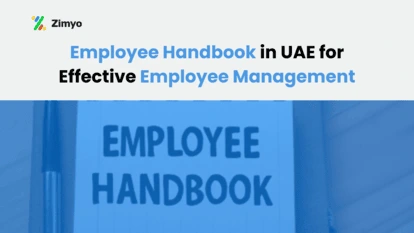- Have you ever experienced the frustration of a delayed salary payment?
- Do you know what measures the government takes to guarantee equitable and transparent wage distribution in the thriving private sector in Saudi Arabia?
- Have you ever wondered about the regulations governing wage payments in the private sector or protecting workers’ rights in the Kingdom?
If you are looking for answers to these questions then you’re at the right place. Here in this article, we will answer all these queries to give you a clear understanding.
Ensuring equitable and punctual remuneration for employees is crucial. This is where the Wage Protection System in Saudi Arabia comes into the picture.
The WPS is an essential tool in Saudi Arabia that guarantees the prompt delivery of wages to employees. The government established this system to control and monitor compensation disbursements in the private sector. It defend workers’ rights and foster openness in business dealings between employers and employees.
Come along on this adventure and accordingly we’ll explore the WPS’s nuances and learn about its goals, advantages, and effects on the labor market and the country at large. Be together, let’s investigate how this ground-breaking approach is influencing Saudi Arabia’s labor market regulations going forward and enabling people to prosper in a constantly changing and dynamic economy.
Wage Protection System in Saudi Arabia

The Saudi Arabian government created the Wage Protection System, or WPS, as a digital platform to make it easier to pay payments to employees in the private sector. Under this system, employers must use prepaid payroll cards or bank transfers to electronically pay employee wages instead of cash or checks.
Somehow, using electronic payment systems instead of paper ones, salary disbursements become more transparent and accountable. Overall this lowers the risk of payment delays, disagreements, or breaking labor regulations.
What are the Objectives of the Wage Protection System in Saudi Arabia?
The following are the main goals that motivate Saudi Arabia to develop the Wage Protection System:
1. Ensuring On-Time Salary Payments: One of the most important objectives of the WPS is to ensure that employees receive their pay on time and in compliance with the conditions of their employment contracts. The system’s requirement for electronic payments reduces the possibility of payment delays and enables timely wage disbursement.
2. Protecting the Rights of Employees: By offering employees a dependable and transparent method of collecting their pay, the WPS protects their rights. The system helps avoid cases of underpayment, nonpayment, or wage fraud by mandating organizations to use electronic payment methods.
3. Improving Accountability and Transparency: The WPS encourages more accountability and transparency in financial transactions between organizations and employees by digitizing salary payments. The ease with which electronic salary payment records go through audits and validated lowers the possibility of fraud or other financial irregularities.
4. Encouraging Labor Market Regulation: The WPS’s implementation makes it possible for government officials to keep a closer eye on and more effectively control the labor market in the private sector. Policymakers can detect patterns, uphold labor regulations, and resolve any concerns pertaining to wage compliance and employee rights by gathering information on wage payments across different businesses and sectors.
Implementation of the Wage Protection System in Saudi Arabia?
The Saudi Arabian Monetary Authority (SAMA), the Ministry of Human Resources and Social Development (MHRSD), and other pertinent government organizations worked together to implement the Wage Protection System in Saudi Arabia.
The following crucial steps were included in the implementation process:
Legislative Structure
The government passed legislation and rules requiring private sector wage payments to be made through the Wage Protection System. These legal clauses provide the rights and responsibilities of employers and workers with regard to paying wages, as well as the consequences of breaking them.
Registration of Employer
Private sector employers must register with the WPS and submit information about their employees, such as bank accounts or pre-paid payroll card details. Moreover, employers can use the WPS platform to initiate electronic wage payments by completing this registration process.
Enrollment of Employee
Employees must receive a prepaid payroll card from authorized financial institutions in order to be enrolled in the Wage Protection System. Also, employees will be able to simply access their funds and receive their wages electronically thanks to this enrollment process.
Processing of Salary Payment
Employers are in charge of processing salary payments on a monthly basis using the WPS platform. Overall, the method makes it easier to move money from employer accounts to payroll cards or employee accounts.
Monitoring and Enforcement
The Saudi Arabian Monetary Authority and the Ministry of Human Resources and Social Development keep an eye on how the WPS is being implemented. Also, they make sure that pertinent labor rules and regulations are being followed. Further, If an employer is found to be in breach of WPS regulations, they may be subject to fines, penalties, or other disciplinary actions.
Benefits of the Wage Protection System in Saudi Arabia?

Employers, employees, and the overall economy all stand to gain significantly from the introduction of the Wage Protection System in Saudi Arabia. Let’s examine these benefits in more detail:
1. Disbursement of Salaries on time:
With the WPS in place, employees can rely on consistently and on time getting their paychecks. By doing this, employees can meet their financial responsibilities on time and better manage their spending because the worry and financial strain brought on by payment delays are eliminated.
2. Protection of the Employees:
Preserving employees’ rights is one of the WPS’s main goals. The technology contributes to the reduction of wage theft, underpayment, and nonpayment of salaries by ensuring electronic salary payments. Overall, employees gain confidence and security from this, knowing that they will receive just compensation for their labor.
3. Enhancement of Accountability and Transparency:
The WPS’s transition to electronic payment methods encourages increased accountability and transparency in the financial dealings between employers and employees. It lowers the possibility of inconsistencies or disagreements. Additionally, by being transparent, there is less chance of fraudulent activity with salary disbursements.
4. Efficiency and Cost Savings:
The WPS offers employers the advantages of efficiency and cost savings. Through the automation of payroll procedures, organizations can save administrative expenses and expedite their operations by doing away with the need for manual cash or check payments. Atlast, this increases productivity and competitiveness in the market while also saving time and resources.
5. Improvement in Compliance:
The WPS is a regulatory tool that incentivizes organizations to adhere to labor laws and wage payment requirements. Moreover, the system’s enforcement and monitoring procedures guarantee that the organizations uphold their legal duties to their workforce and discourage noncompliance. Overall, this enhances the general integrity of the private sector and promotes a culture of conformity to labor laws.
Stay Compliant with the Law
6. Expansion of Financial Inclusion:
Using electronic payment options like bank transfers and pre-paid payroll cards encourages employees to be more financially included. Employees can obtain conventional banking services, including savings accounts, remittance facilities, and other financial goods, through the WPS. Further, not only does this enable people to handle their money better, but it also helps the financial industry expand.
7. Increment in Employee Satisfaction and Retention:
Higher levels of employee satisfaction and retention are correlated with timely and transparent salary payments under the WPS. Employee loyalty and active participation in the success of the organizations are higher when they perceive that their efforts are valued and adequately compensated. As a result, organizations see lower turnover rates and lower hiring expenses.
8. Empowerment of Employees:
The WPS gives employees more power by making sure they receive just compensation for their efforts and are shielded from exploitation. As well as the approach builds a culture of respect for labor rights and gives employees more bargaining power. This supports employee growth and social fairness, which is consistent with Saudi Arabia’s goal of creating a successful and just society.
9. Enhancement of Reputation and Investor Confidence
Saudi Arabia’s dedication to protecting workers’ rights and fostering an environment that is conducive to business is evident in the execution of the WPS. As a result, economic diversification and draws foreign direct investment by improving the nation’s standing with global organizations and overseas investors.
Sustainable economic development is fueled by the labor market’s open and regulated nature, which is made possible by the WPS. This inspires confidence in investors and stakeholders.
Conclusion of the Wage Protection System in Saudi Arabia
To wrap up, the Wage Protection System in Saudi Arabia has become a fundamental component of labor market regulation. Meanwhile it provides numerous advantages to organizations, employees, and the broader economy. In addition the WPS promotes sustainable economic growth and development by encouraging accountability, and justice in wage payments.
In the end, it is anticipated that the government’s efforts to improve and broaden the system will have a lasting effect on the private sector labor market, resulting in advancement and prosperity for all parties involved.
Frequently Asked Questions (FAQs)
The Wages Protection System (WPS) is a digital platform mandated by the Saudi government to ensure timely and transparent wage payments to private sector employees.
It uses electronic transfers via banks or prepaid cards to prevent delays, disputes, and wage violations.
WPS is a regulatory tool that mandates employers to pay salaries electronically, enhancing wage transparency and compliance with labor laws.
The payroll system in Saudi Arabia involves automated salary processing aligned with WPS regulations to ensure legal wage disbursement.
It includes employer registration, employee enrollment, digital salary transfers, and government monitoring.
WPS ensures timely salary payments, protects employee rights, boosts transparency, and encourages legal compliance.
It also promotes financial inclusion, increases employee satisfaction, reduces disputes, and enhances investor confidence.
What People Think About Zimyo






































